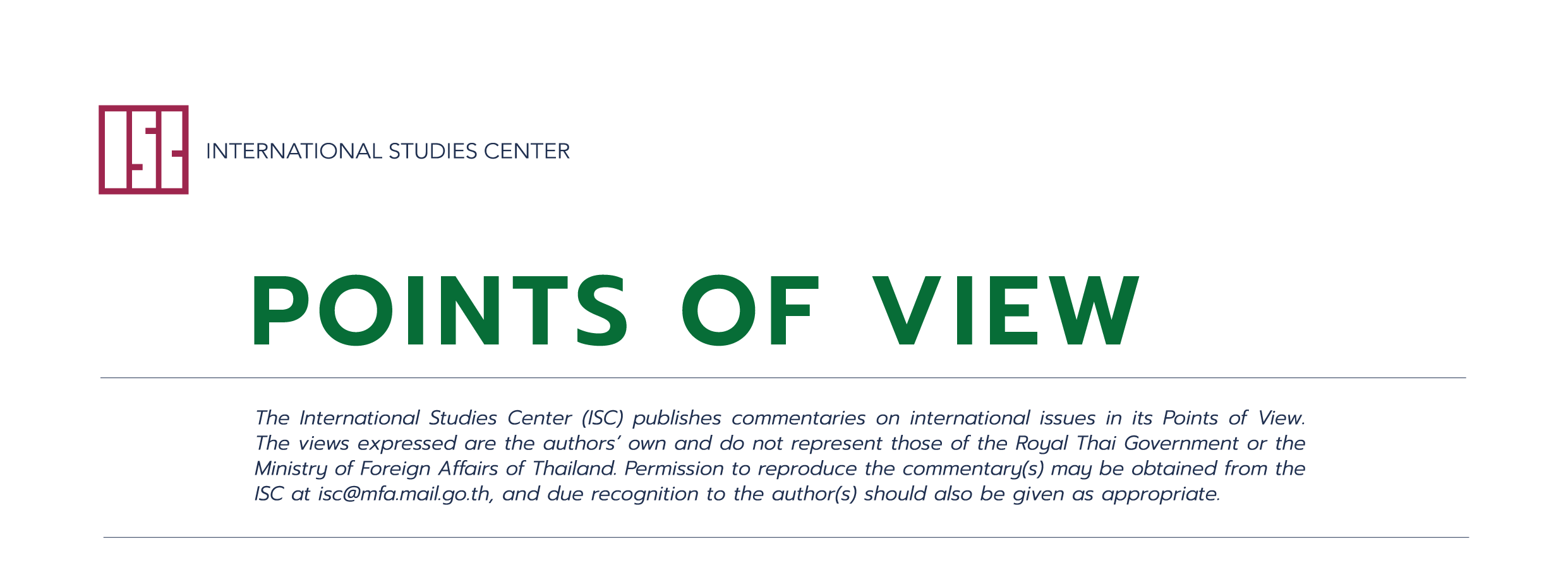ASEAN's Challenges to Implementing the 5PC | Kavi Chongkittavorn
ASEAN's Challenges to Implementing the 5PC | Kavi Chongkittavorn
วันที่นำเข้าข้อมูล 27 Jul 2022
วันที่ปรับปรุงข้อมูล 14 Dec 2022
 |
No. 6/2022 | July 2022
ASEAN's Challenges to Implementing the 5PC
Kavi Chongkittavorn*
(Download .pdf below)
The second official visit by the special envoy of the ASEAN Chair to Myanmar, Deputy Prime Minister and Foreign Minister Prak Sokhonn, failed to make any substantial progress, which will impact Myanmar’s future engagement with ASEAN-related summits later this year.
The visit, which took place from 30 June-3 July, must be viewed objectively due to the ongoing situation on the ground and mounting international pressure for all conflicting parties to enter into peace negotiations. Even though the dry season has ended weeks ago, the Tatmadaw, Myanmar’s military, is still fighting the resistance groups comprising elements of Ethnic Armed Organizations (EAOs) and People’s Defence Forces (PDF).
The most important task for the special envoy was to follow up on the progress, sluggish as it may be, of the Five-Point Consensus (5PC) and the outcome of the commitments made by Myanmar’s Taskforce with regard to humanitarian assistance. In early May, the ASEAN chair held a consultative dialogue among stakeholders to work out action plans to provide humanitarian assistance to affected peoples of Myanmar without any discrimination. The ASEAN Coordinating Center for Humanitarian Assistance and Disaster Management (AHA Centre) and Myanmar’s Taskforce would be the key ASEAN players in this operation.
The second task is a continuous process of trust-building and creating an environment conducive to future inclusive political dialogue. During the second trip, the special envoy managed to meet with senior officials of the State Administration Council (SAC) including Senior General Min Aung Hlaing as well as representatives from EAOs, non-SAC and opposition groups. They included the Restoration Council of Shan State, the Pa-O National Liberation Organization, the Democratic Karen Buddhist Army, the Karen National Union, the Arakan Liberation Party, the New Mon State Party and the Lahu Democratic Union.
Obviously, the focus of the second visit was on whether Prak would be able to meet with Daw Aung San Suu Kyi and her lawyer as well as former president Htin Kyaw and his spouse, which did not happen. If they were included in the visitor’s list, the trip would mark a significant progress in fulfilling one of the 5PC demands in meeting with all stakeholders of the 5PC. Unfortunately, representatives from other political parties including the National League for Democracy, the Shan National League for Democracy, the Kaya State Democratic Party and the Kachin State People’s Party were unable to attend. According to the special envoy, it was due to travelling issues.
Notably, the meeting will all stakeholders was also the key issue that visiting Chinese Foreign Minister Wang Yi chose to comment on during his recent visit to Myanmar to attend a foreign ministerial meeting on Mekong-Lancang Cooperation in Bagan. He has urged Myanmar’s junta to hold talks with its opponents which comprise the National Unity Government, EAOs, and non-SAC groups. China has maintained good relations with both the SAC and Daw Aung San Suu Kyi.
Wang also told his Myanmar counterpart Wunna Maung Lwin that China sincerely hopes that Myanmar will become politically and socially stable. This is the key issue about which Beijing has been quite concerned. According to an informed source who had access to the Thai-Chinese meeting attended by Deputy Prime Minister and Foreign Minister Don Pramudwinai in April in Anhui, Wang reiterated that the opposition leader, Daw Aung San Suu Kyi, has an important role to play in Myanmar and she must be taken care of.
At the press conference after his return to Phnom Penh, Prak said that all the EAOs and political parties expressed concern at the violence and threats against civilians in their controlled areas. At this juncture, the so-called dual conflicts continue. One is the longstanding conflict between the EAOs and the Tatmadaw. A second war emerged after February last year between the Tatmadaw and the PDF.
The current situation does not augur well with future plans to provide humanitarian assistance because to do so Myanmar needs some degree of stability and openness. During his visit, Prak said China donated 2 million doses of vaccine to Myanmar through the ASEAN-led framework. In order to have a comprehensive and long-term plan for humanitarian work, it is imperative that the Myanmar officials work together with the international organization. The AHA Centre has to compete with the Joint Needs Assessment team in the near future. Meanwhile, Nay Pyi Taw has yet to allow a full-scale on-the-ground evaluation of the current situation.
On the prospect of jump-starting inclusive dialogue, the special envoy offered a rather bleak assessment due to the unyielding attitudes of all conflicting parties. The SAC has set August next year for the general election. Prak pointed out that the 5PC is the best exit strategy for all, but for the ASEAN plan to succeed, political will and cooperation are needed.
From his perspective, there was the door of possibility for negotiation in the future. He also outlined the SAC’s three conditions for peace talks with the opposition groups. First, they must not destroy the government in power. Secondly, they cannot replace the government and finally, the 2008 constitution shall be used as the basis for peace talks.
At this juncture, at three of the 5PC are being implemented but not in a fully-fledged manner, especially the humanitarian assistance, inclusive political dialogue and meetings with all stakeholders. The next five and half months will be crucial as the mandate of ASEAN chair under Cambodia will come to an end. Before the ASEAN-related summits kick off in early November, there must be substantive progress in the peace process otherwise Myanmar could be further isolated by its ASEAN colleagues and dialogue partners.
With the incoming chair, Indonesia’s well-known tougher positions against the Tatmadaw, the prospect for full implementation of 5PC could face more hurdles.
[*] Veteran journalist on regional affairs